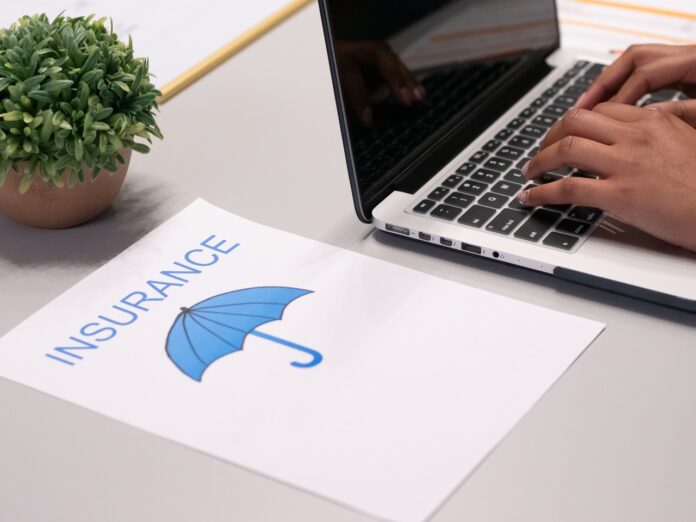
Insurance. It is not a fun subject to talk about and something that people never want to think about needing. But, for renters, it is not talked about enough for events like a burglary.
The average cost of a burglary is $2,799. Fortunately, renters insurance coverage will cover your losses in given situations.
But how much renters insurance do you need? Will renters insurance cover all of your losses?
Keep reading more at this website and look below to learn everything you need to know about renters insurance.
What Is Renters Insurance Coverage?

Renters insurance covers unexpected events (covered perils) and its policy is a group of coverages designed to help protect renters living in a house or apartment.
There are certain situations that you cannot always prevent as a renter, such as theft, a break-in, or a visitor’s injury, and that is where renters insurance comes in.
What Does It Cover?
Unexpected events can vary, but the main things covered in renters insurance are personal property, liability, medical expenses, and additional living expenses. So, what do these mean exactly?
Say there is a burglary of your apartment and some valuable possessions like a game console and your laptop are missing.
Well, with renters insurance, you could have the ability to receive the cost of those items. So, instead of potentially paying a few thousand dollars out of pocket to replace those items, or not being able to afford to replace those items, your insurance will give you the money to get those items back.
With liability and medical expenses, this mainly comes into play when a guest gets hurt on your property. Say you have toys and clothes lying around by your stairs and your friend’s girlfriend falls down the stairs and breaks her neck.
You could be held responsible for not only paying her medical expenses but also face legal trouble. In that case, you may need to hire a lawyer and with renters insurance, the liability from that would be covered.
Then, there are additional living expenses. This basically means that if for some reason, the place you rent becomes unlivable from a fire that was not your fault or mold in the walls, renters insurance can cover the expenses it takes for you to live in another location until it gets fixed.
When you are renting instead of buying a home, you may not think about insurance being able to cover those living expenses. But, it turns out, renters insurance can and will give you protection on that without having to own the property.
What Does It Not Cover?

Of course, while renters insurance can cover some things that you may not have expected, it is not a miracle worker. There are some things that it just cannot cover, with one of the most obvious being the building structure.
This falls under the responsibility of the landlord. So, if the building roof or window is affecting your living conditions, that is something that you will have to take up with your landlord.
Another thing renters insurance may not cover is injury via pets. Say for example that you have a cat that scratches your guest in the eye with its claws.
Renters insurance may not be able to cover this, especially if your apartment has a no pets policy. If that is the case, then you are likely going to have to pay for the person’s medical expenses yourself.
Also, one of the more notable things not usually covered is certain natural disasters. In Missouri, the biggest natural disaster risk is usually a tornado. So, if you have personal property damage because of something like a tornado, then that will not be covered.
Finally, do not think that you can sneak your roommate’s belongings onto your renters insurance claim. Roommate’s property does not get covered by policies unless the roommate is a spouse.
Insurance companies do check this and you will have to provide proof that the items that you are claiming are actually your own and that you bought them.
No insurance policy is perfect and despite some common restrictions above, there is still plenty that it covers that can save you versus the stuff not included here.
How to File a Claim

So now that something happened on your property, you will need to take advantage of having a policy. If you are dealing with personal property, you will want to have a list of everything that you own in the apartment, ideally before something bad even happens.
After that, you will need to note any and all damage to your property in a potential claim. If the property was stolen, take notes for everything there.
Then, provide evidence that you actually own this property. This can be anything from a credit card statement to a receipt. So, for those of you that actually save all of your receipts, this is the day when it really comes in handy.
For additional living expenses, that should be more straightforward, but you may need to provide receipts and statements proving you are paying the amount that you are to move.
Then, you just need to get in touch with your insurer and start the process. This can take some time validating your story and your claims, so some patience is going to be required here.
Know Your Limits

Like most insurance, there are limits to how much you can financially gain. Say you lose a valuable gold chain worth $50,000. Well, unfortunately, renters insurance may not be able to cover that, as the personal property claims usually have a lower limit of around $10,000.
It is important to read the fine print here and know what items in your apartment you can actually have protected in case of an unexpected event.
Protect Your Rent
Well, now you know that a slip and fall in your place and theft of your laptop can be covered. At the same time, you also know that you cannot include your roommate in your coverage.
We encourage you not to underestimate the importance of renters insurance coverage and start giving it some serious thought. Are you ready to protect yourself?











